Itchy Scalp / Dandruff / Oily Scalp
Treat your scalp like soil and your hair like a plant – healthy hair grows from fertile soil. If you have an itchy, oily scalp, or dandruff, take care of your scalp and hair health. If functional shampoo doesn’t help, consider aesthetic treatments.
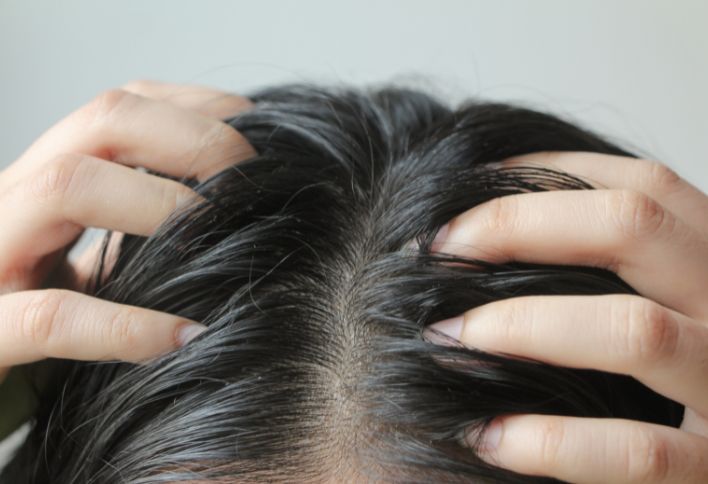
Scalp Health
The scalp is thin skin, 1/50 of the skin on the feet, and ages quickly with high free radicals. It ages 6 times faster than the face and 12 times faster than the body.
The scalp is thinner and more sensitive than the face. It renews its cells every 14-21 days and produces twice as much sebum. However, sebum is harder to remove from the scalp, causing buildup. Poor scalp hygiene can lead to oily, itchy, or dandruff-prone scalp.
A healthy scalp needs a strong barrier to regulate water and protect against external factors. Damage to this barrier can cause scalp problems like dandruff, dryness, itchiness, and oiliness. Don’t ignore scalp issues as they can lead to hair loss.
Symptoms
Oily Scalp
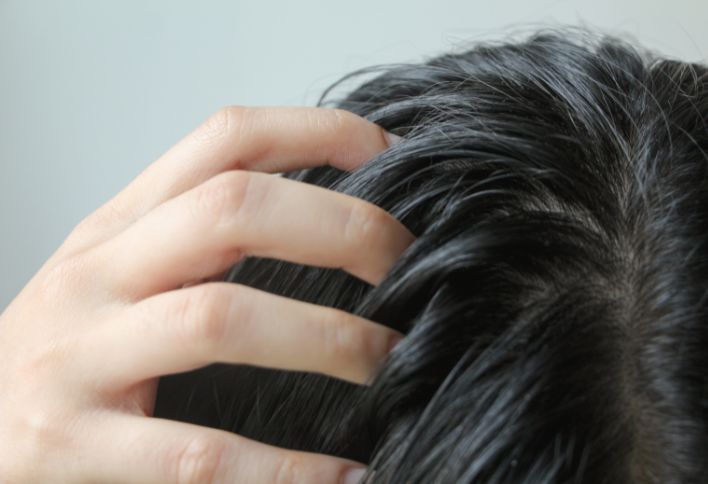
People with oily scalps always have greasy hair roots, even after washing. Improper washing can lead to a buildup of oil in hair follicles, which can cause dandruff and eventually hair loss, known as seborrheic alopecia.
Dandruff
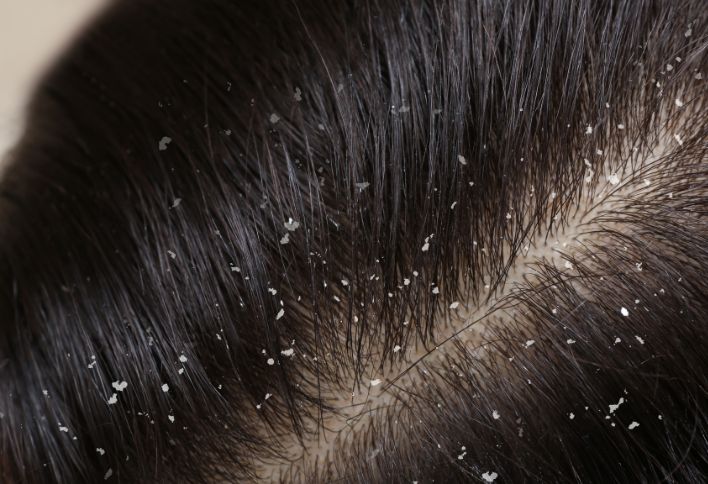
Shedding skin from the scalp is normal, but if it’s excessive and lasts a while, it may be due to a fungal infection called Malassezia. This can cause itchy, inflamed, and sensitive scalp with white or grey flakes. Untreated, it can lead to repetitive dandruff and itchiness.
Itchy Scalp
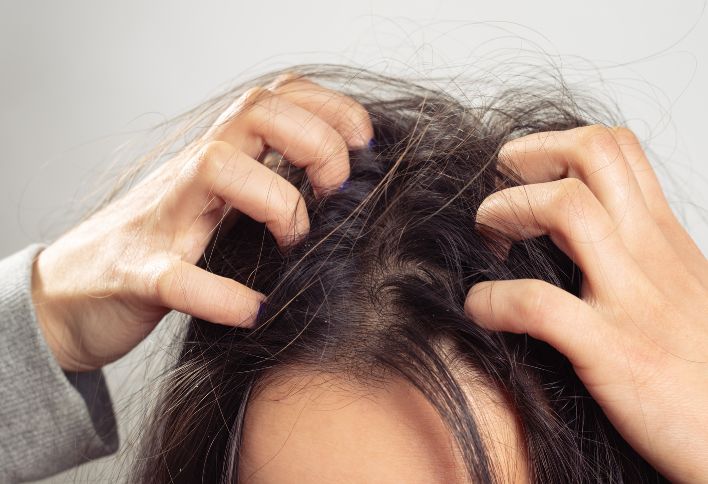
An imbalanced scalp flora can lead to an itchy scalp, which can become unhealthy if left untreated. Itchy scalp can be caused by sebum secretion, improper hair washing, dandruff, and seborrheic dermatitis. These conditions all suggest an unhealthy scalp.
Causes
Our scalp health is influenced by our lifestyle and environment.
1. Stress
Stressful activities like working late, overtime, and anxiety can disrupt hormones and cause more sebum production and scalp irritation.
2. Unhealthy lifestyles
Unhealthy habits like eating spicy and fried foods, smoking, and drinking can harm the immune system of the scalp, leading to uncontrolled fungal growth on the scalp.
3. Poor quality hair
Poor quality hair products can cause dandruff and itching. Hair dyeing and perming can also damage the scalp.
4. Change of seasons
Our scalp can be sensitive to temperature changes, which can cause dandruff issues. For instance, as the temperature rises during summer, our body sweats more and secretes more scalp oil.
5. Air pollution
Air pollution can damage scalp and hair with harmful gases and substances in the air.
6. Malassezia
Malassezia is a fungus that thrives on healthy scalps and feeds on sebum. Changes in your lifestyle like late nights or unhealthy eating produce more sebum, leading to more Malassezia growth. This growth can speed up shedding of scalp cells, causing more dandruff and scalp itching.

Treatment
We take care of our hair like how we take care of our face. Keeping the scalp a healthy environment can subsequently deliver a balanced condition to the growth of hair and scalp.
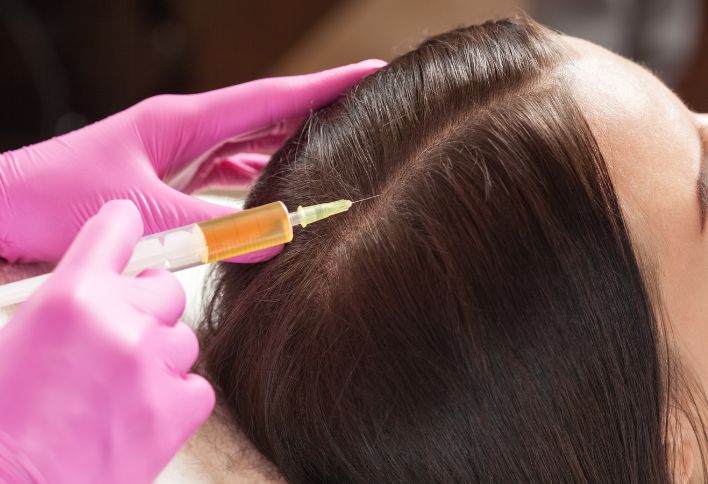
PRP, or Platelet Rich Plasma, is a plasma with high levels of platelets and growth factors that can improve skin and hair conditions and accelerate wound healing. PRP treatments are proven safe through certification from CE, ISO, SQS, and clinical studies in other areas. Research shows successful results in increasing hair thickness, reversing hair loss, and promoting hair growth.
How does PRP work
Procedure
- 1. Face-to-face consultation: Skinspire Laser&Skin Clinic provider will develop a unique PRP plan based on the client’s condition and desired results.
- 2. Pre-treatment preparation: Skinspire Laser&Skin Clinic provider will collect blood from clients and obtain concentrated platelets solution by centrifugation; Apply anaesthesia, clean, and disinfect the scalp.
- 3. PRP injection: Skinspire Laser&Skin Clinic provider will administer injection solution to the scalp by a qualified practitioner. Repeat injection in severe areas.
- 4. Post-treatment precautions.
Who is it for
- People who are prone to oily hair
- People with seborrheic alopecia
- People with severe problem of hair loss or baldness
- People who start to see receding hairline
- People with thin hair or wide part line
- People who are looking for healthier and stronger hair
- People who wish to increase their hair thickness and fullness by non-hair transplant method
